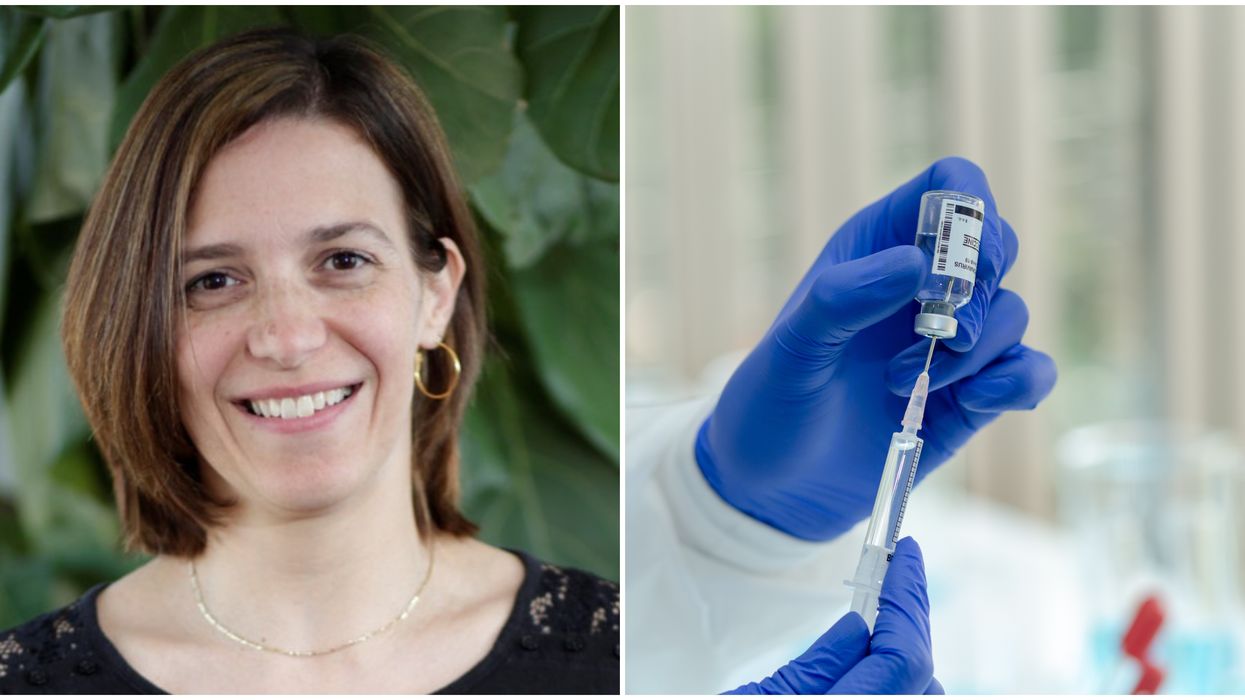We Talked To A Scientist From The Quebec Company Leading Canada's COVID-19 Vaccine Race
Vaccine talk has ramped up in the past couple of weeks, following announcements that a Pfizer-BioNTech vaccine, as well as a Moderna vaccine, appear to be over 90% effective against COVID-19.
Prime Minister Justin Trudeau even said today that, if everything goes as planned, the majority of Canadians could be vaccinated by September 2021.
And, in a press conference on November 26, Premier François Legault told Quebecers the province is preparing so it's ready to start vaccinating as early as January.
While, according to Trudeau, Canada does not have the capability to manufacture the vaccines domestically, a Quebec company called Medicago is leading the country in terms of vaccine development — its vaccine candidate is more advanced than any other candidate nation-wide.
We spoke to Medicago's senior director of scientific and medical affairs, Nathalie Charland, to find out more.
Editor's Choice: A New Document Shows Just How Hard Montreal's Tourism Industry Was Hit By COVID-19
How does your vaccine work & how is it different from other vaccines?
"Medicago is using [live] plants to produce vaccines and to achieve a protein," Charland told MTL Blog. The protein mimics the architecture of the virus but is not infectious.
This differs from more traditional vaccines which may use eggs, or inject weakened versions of viruses into our bodies.
The "big advantage" of using plants, she said, is that live viruses are not required to start the production of a vaccine.
All scientists need is the genetic code of the virus, which they insert into the plants. The plants become "our mini-factory," she said, and start producing virus-like particles (VLPs).
The plants are harvested, blended up into a soup-like consistency and purified to create the material needed for the vaccine.
Charland explained that when you inject VLPs into people, they trick the immune system into thinking it's the virus. Your body then reacts by producing the immune response it needs to fight the actual virus.
VLPs have been shown to be effective for other viruses, including HPV and the flu.
While Medicago is making a VLP vaccine, Pfizer-BioNTech and Moderna are making mRNA vaccines, a new type of vaccine that sends instructions to the body for how to create a harmless piece of viral protein.
When will your vaccine be ready?
"If everything goes well [Medicago] will have a vaccine approved in 18 months," Charland said. "We won't be the first but it's not a race against companies. It's a race against the virus."
Charland explained that there are things we don't know about the new vaccines currently in development.
"There are eight billion people on the planet that will most likely require two doses of the vaccine to be effective," she said.
"It's good to have a portfolio of different vaccine technologies so we can first deliver enough doses for everybody and also to make sure that all the different age groups or ethnicities or conditions are protected across the planet."
Medicago completed its phase one clinical trial over the summer and Charland said the results were very good.
The beginning of phase two was announced on November 12.
But Charland said the phase three efficacy trial, which she hopes will start in early 2021, is the "reality check" for determining how well the vaccine actually works.
She said it will be done in countries around the world where high levels of the virus are circulating — possibly North America — and that they expect to test about 30,000 people.
Will Quebecers have easier access to your vaccine since you're a local company?
Charland said Medicago, which is building a $245 million production facility in Quebec City, is manufacturing its vaccine candidate "at-risk," meaning it is doing so before knowing whether or not it will be approved by Health Canada.
"If we show that it is protective and we of course get the authorization from Health Canada, we can start distributing the vaccine as soon as possible," she said.
The Government of Canada has already reserved 76 million doses of Medicago's vaccine, pending Health Canada approval.
But Charland clarified that it is up to the federal government to distribute the doses.
"We're ready to help anywhere in the world if we can provide doses to other countries too," she said.
What has the experience of working on a COVID-19 vaccine been like for you personally?
"Everything is going so quick. We've done in eight months what we usually do in five years," Charland said.
But she explained that she wasn't really surprised by COVID-19. In fact, she said it's Medicago's mission to address emerging biological threats.
"We've been working on addressing this type of pandemic for the past 10 years probably because everybody was expecting a pandemic flu," she said.
"[Our] platform is very versatile. We just change the genetic sequence we put into the plants and we can switch the vaccine [...] so we were ready to go! Hopefully, it will translate into an effective product."
However, Charland said there are still lessons to be learned: "It's important to invest, first, in new technologies [and second to] invest locally," she said.
"In such a time of crisis, we have to be ready to [react] in our own country."
Asked if we should expect another pandemic, Charland said yes.
"With climate change, people travelling more, [...] people getting older in western countries so they are more at risk, we never know what will happen [...] so we'd better be ready."

